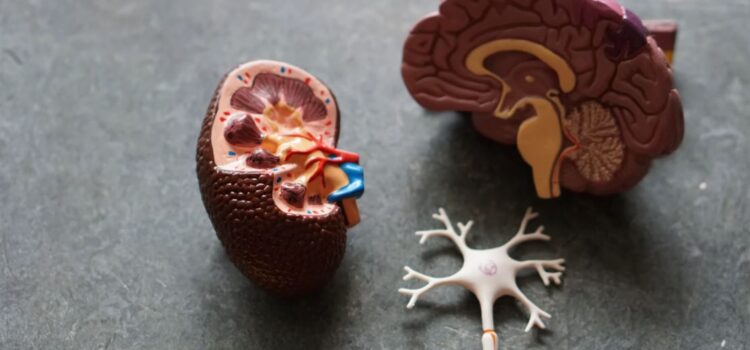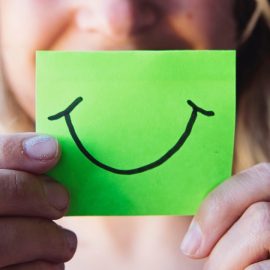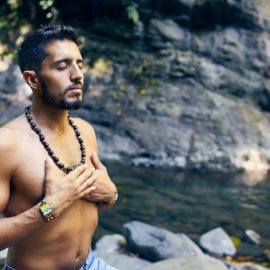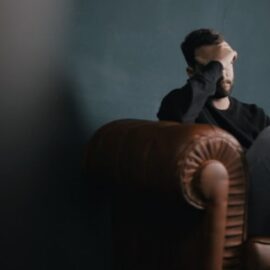

This article is an excerpt from the Shortform book guide to "Flow" by Mihaly Csikszentmihalyi. Shortform has the world's best summaries and analyses of books you should be reading.
Like this article? Sign up for a free trial here .
Do you want to learn to control your consciousness? How does consciousness work? What are the limits to consciousness?
If you want to learn how to control your consciousness, the first step is understanding what consciousness actually is and how it works. In his book Flow, Csikszentmihalyi thoroughly covers these topics.
Continue below to learn how consciousness works and what its limitations are.
How Does Consciousness Work?
At different points in human history, such as Republican Rome, having control over the inner workings of your mind was considered necessary for fitting into and succeeding in society. People preferred thinking things through rather than acting on instinct. Today, it’s more popular to act on instinct, and we consider people who seek control of their emotional states uptight or operating outside of the norm. Yet evidence shows people who master their inner life are generally happier than those who don’t.
To control your consciousness, you’ll first learn about what your consciousness is and how consciousness works. Then, you’ll learn how controlling it facilitates flow experiences.
What Is Consciousness?
Consciousness is a mental state of awareness in which we perceive, process, and act on information and sensory input. Information includes feelings, ideas, and perceptions. Because consciousness gives you the ability to process and prioritize information, it can be thought of as “intentionally ordered information.” Having the ability to act is also key: If you weren’t conscious, you could still process information, but your body would only be able to react in a pre-programmed way rather than by deciding how to act. For example, if you dream that a relative had a car accident, you can’t act on that information, for instance by verifying it, because you’re unconscious.
Having the ability to filter information means you can learn to control your reactions regardless of whether you’re happy about what’s happening or not. For example, if you’re not chosen for a promotion at work, you can choose to feel defeated by the experience, or you can view it as an opportunity to learn and further hone your skills until you’re promoted.
Consciousness Has Limits
Research can help us estimate how much information the brain is able to process. Here are some figures:
- The brain is capable of processing up to 125 bits of information per second. That means we can process up to 7,560 bits per minute, and half a million in an hour.
- In a 70-year lifetime, we can process 185 billion bits of information. All of our thoughts, feelings, and actions come from this.
Yet it’s unclear whether we regularly reach this capacity. Some experts think we’ve evolved to facilitate information intake so that we focus only on important information and constantly expand our processing capacity. For example, when you learn to drive, it takes all of your concentration at first, but eventually becomes easy, freeing your attention for other things. We’re also able to compress information for ease of processing. For example, a story in the Bible might contain a lesson distilled from the experience of many people that we can learn readily with one reading.
But Csikszentmihalyi is skeptical that consciousness can be constantly expanded. First, despite our ability to compress information intake, we still spend 15 percent of our waking hours eating and doing basic bodily maintenance, such as showering. Though these tasks don’t require much concentration, we don’t have the capacity to focus on much more while doing them. And while we may be able to process a considerable amount of information, we tend to seek leisure experiences that require less information processing.
For example, in the one-third of our waking hours that aren’t spent working or tending to bodily functions, we tend to seek out activities like watching TV. When watching TV, we take in some visual and auditory stimuli, but taking pleasure in it doesn’t usually require much memory or thinking—you don’t have to concentrate to watch TV like you do for other activities, like learning a language. Other leisure activities, like looking out the window, are similarly undemanding on our consciousness.
So while it’s possible we have the capacity to process 185 billion bits of information in our lifetime, the amount we actually process could be much lower based on the activities we choose to do. Also, because there is so much information to perceive, only a select amount of everything you’ve felt, perceived, suffered, and so on becomes part of your consciousness. When it does, it becomes part of your life—how you reflect on the world and understand it.
Uses of Consciousness: An Important Caveat
Some people think of consciousness as an entity with mystical powers waiting to be unlocked. For example, they believe that with the right training, they can use consciousness to work miracles or look into the past or the future. People who claim to have such powers aren’t necessarily liars; they’re often self-delusional—their mind is overly receptive and tells them they have special powers. Some people—for example, professional musicians—may appear to have special powers, but their ability stems from advanced training and practice. Though it may be possible to accomplish additional feats of consciousness in the future, like bending spoons with brainwaves, we should focus our energy on learning to order our consciousness—a useful but underutilized skill.
Using Consciousness to Its Fullest: “E” and “R’s” Story
Csikszentmihalyi offers two peoples’ stories to illustrate the power of using consciousness to achieve your goals.
A European scholar and businesswoman, “E” is an accomplished professional who fills her days with business meetings as well as active leisure tasks, such as reading, writing, and being curious about the world around her. For example, she enjoys going to art galleries and talking with her chauffeur about their impressions. She takes time to recharge using simple means, such as standing in the sunshine on the lakeshore with her eyes closed, or taking a nap when she has a gap in her schedule. She manages to live life to the fullest despite facing extreme hardship growing up: Her family became impoverished during World War I and in World War II, “she lost everything, including her freedom.” Her trick is refusing to give her attention to unproductive thoughts and activities.
“R” is a scholar and author, but is E’s opposite in terms of personality. He’s not a memorable person, but is intensely curious about the world and strives to learn what he can about the way the world works, exploring things that others take for granted. He likes understanding the world and perhaps expressing what he has learned, but he isn’t looking to make judgments. He is well-regarded by the select people he is close to and has a calmness with which he approaches the world.
Both E and R are just two examples of how people can efficiently direct their limited attention. Whether your life is enriching and rewarding or poor and unhappy depends on how you focus your attention.

———End of Preview———
Like what you just read? Read the rest of the world's best book summary and analysis of Mihaly Csikszentmihalyi's "Flow" at Shortform .
Here's what you'll find in our full Flow summary :
- Why people feel the happiest when they're in the "flow state"
- What activities and personality traits promote flow
- Why you may have a paradoxical relationship with work and leisure






